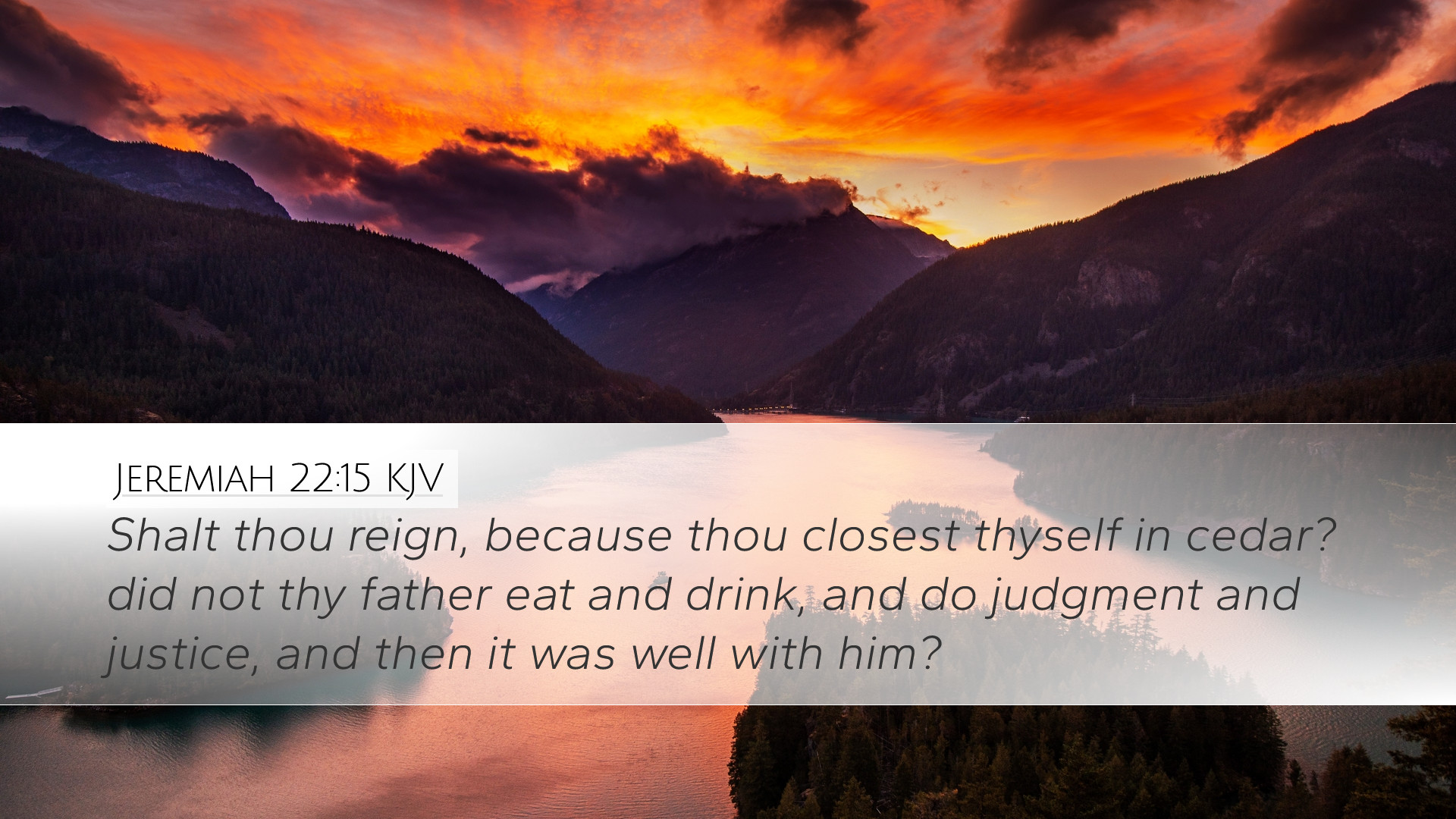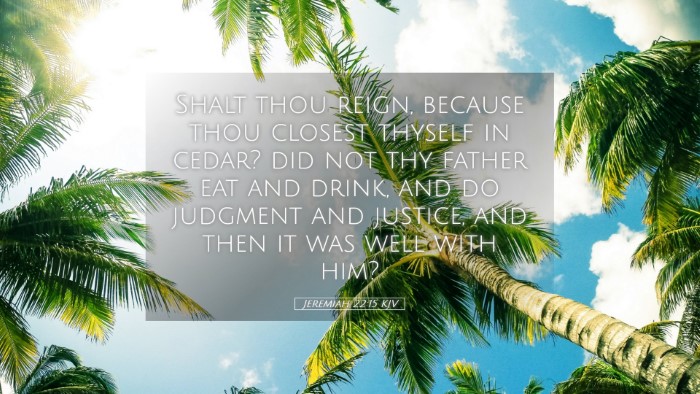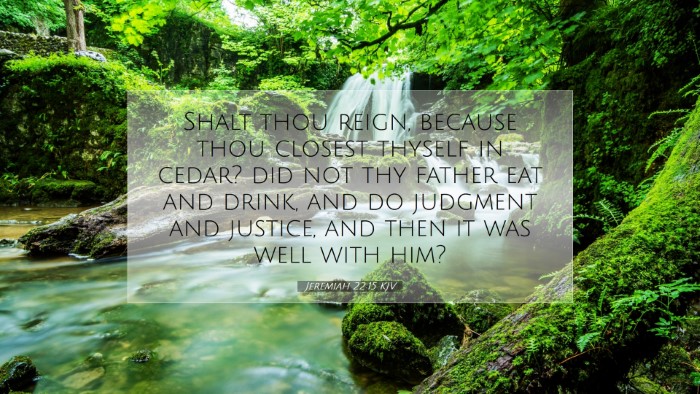Jeremiah 22:15 - Commentary Summary
Jeremiah 22:15 reads: "Shalt thou reign, because thou closest thyself in cedar? did not thy father eat and drink, and do judgment and justice, and then it was well with him?" This verse comes from a larger discourse where the prophet Jeremiah is addressing the king of Judah, shedding light on the expectations of righteous leadership compared to the materialistic approach often adopted by rulers.
Historical Context
The background of Jeremiah's prophecy is critical to understanding its meaning. Jeremiah prophesied during the late seventh and early sixth centuries B.C. during a turbulent time in Judah's history. Kings were often swayed by wealth and worldly power, leading to the neglect of justice and righteousness.
Exegesis of Jeremiah 22:15
The statement "Shalt thou reign, because thou closest thyself in cedar?" highlights the superficiality of relying on material possessions as a source of authority and legitimacy. Cedar symbolizes luxury and grandeur, suggesting that the king's confidence lies in his wealth rather than in God’s decree.
Commentary Insights
-
Matthew Henry's Commentary:
Henry emphasizes the futility of placing trust in material possessions. He asserts that true kingship is founded on righteousness and not on the ostentation of wealth. True leaders are known for their moral integrity, contrasting sharply with kings who focus solely on their earthly gains.
-
Albert Barnes' Notes:
Barnes offers a historical perspective, noting how King Josiah’s reforms were marked by an emphasis on justice and the well-being of the people over the accumulation of wealth. He implies that leadership devoid of compassion for the people is destined for failure, echoing the sentiment of accountability that rulers have before God.
-
Adam Clarke's Commentary:
Clarke dives deeper into the metaphor of cedar, emphasizing that while it represents strength and durability, it is also indicative of a façade when divorced from virtuous living. He insists that mere external affluence cannot justify one’s reign if there is a lack of divine favor through righteous actions.
Lessons for Leaders
This verse calls into question the character of those in positions of authority. It warns that reliance on wealth and material distinction can distract leaders from their primary responsibility to execute justice and righteousness. Let's draw some meaningful applications:
- Righteousness over Wealth: Leaders are reminded to prioritize ethical leadership over the attraction of wealth. Their influence should be predicated on justice, equity, and the common good.
- Legacy of Integrity: The mention of King Josiah alludes to the legacy left for future generations. Leaders should aim to build a legacy founded on moral rectitude rather than transient riches.
- God's Standard for Leadership: Ultimately, God's expectations for leaders are not dictated by worldly standards. True kingship is a reflection of God's justice, and leaders are accountable not merely to their populace but also to the divine.
Conclusion
Jeremiah 22:15 serves as a profound reminder for all in positions of authority. The juxtaposition between reliance on earthly riches and the essential qualification of justice puts forth a potent warning about the nature of true leadership. This passage elucidates the characteristics that define a godly leader and challenges the values of a materialistic society. In a time where leaders often prioritize self-interest, this inquiry into the nature of true kingship inspires reflection on the part of both contemporary and future leaders.


